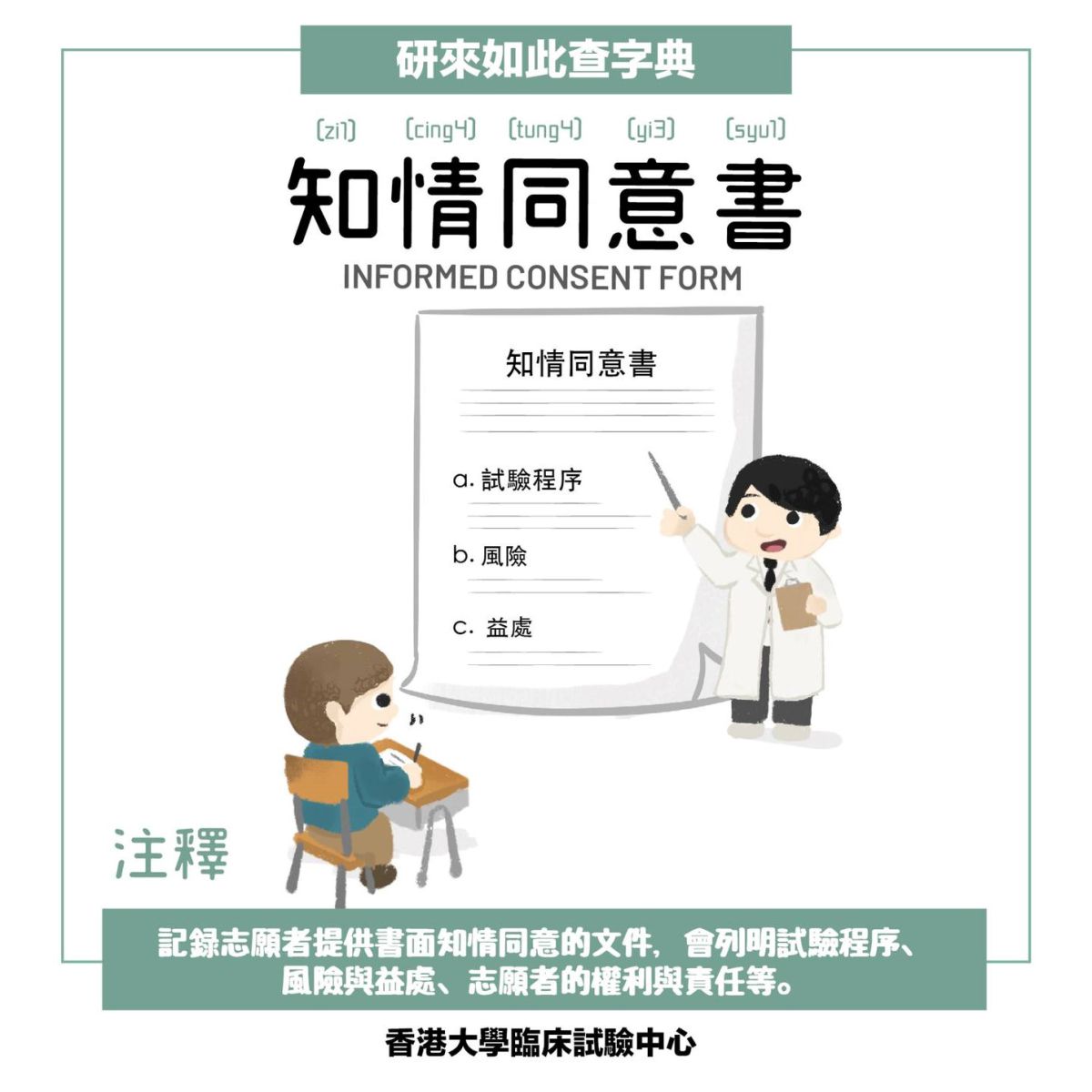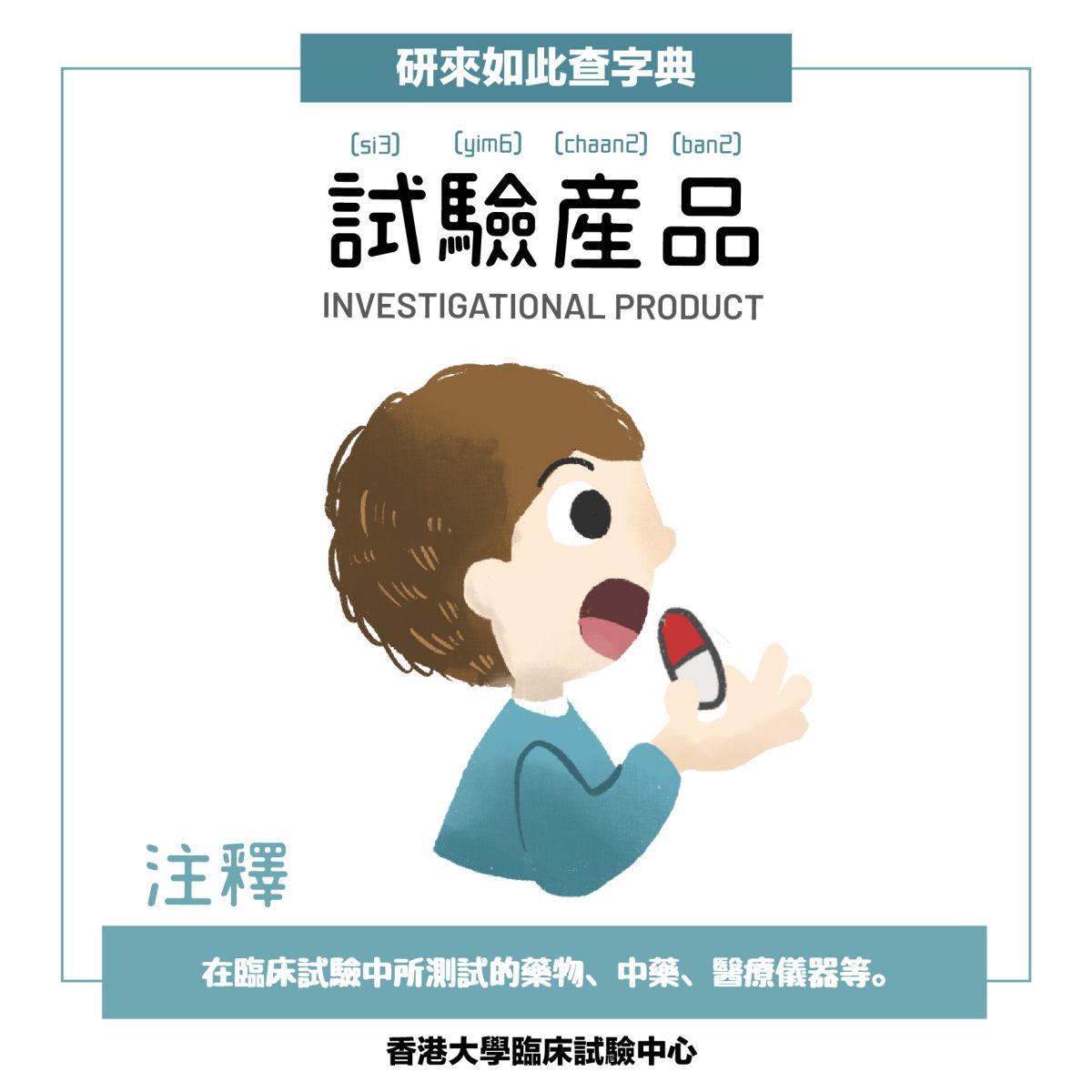[Pharma Tips] Can medication turn my teeth yellow?
08/01/2023
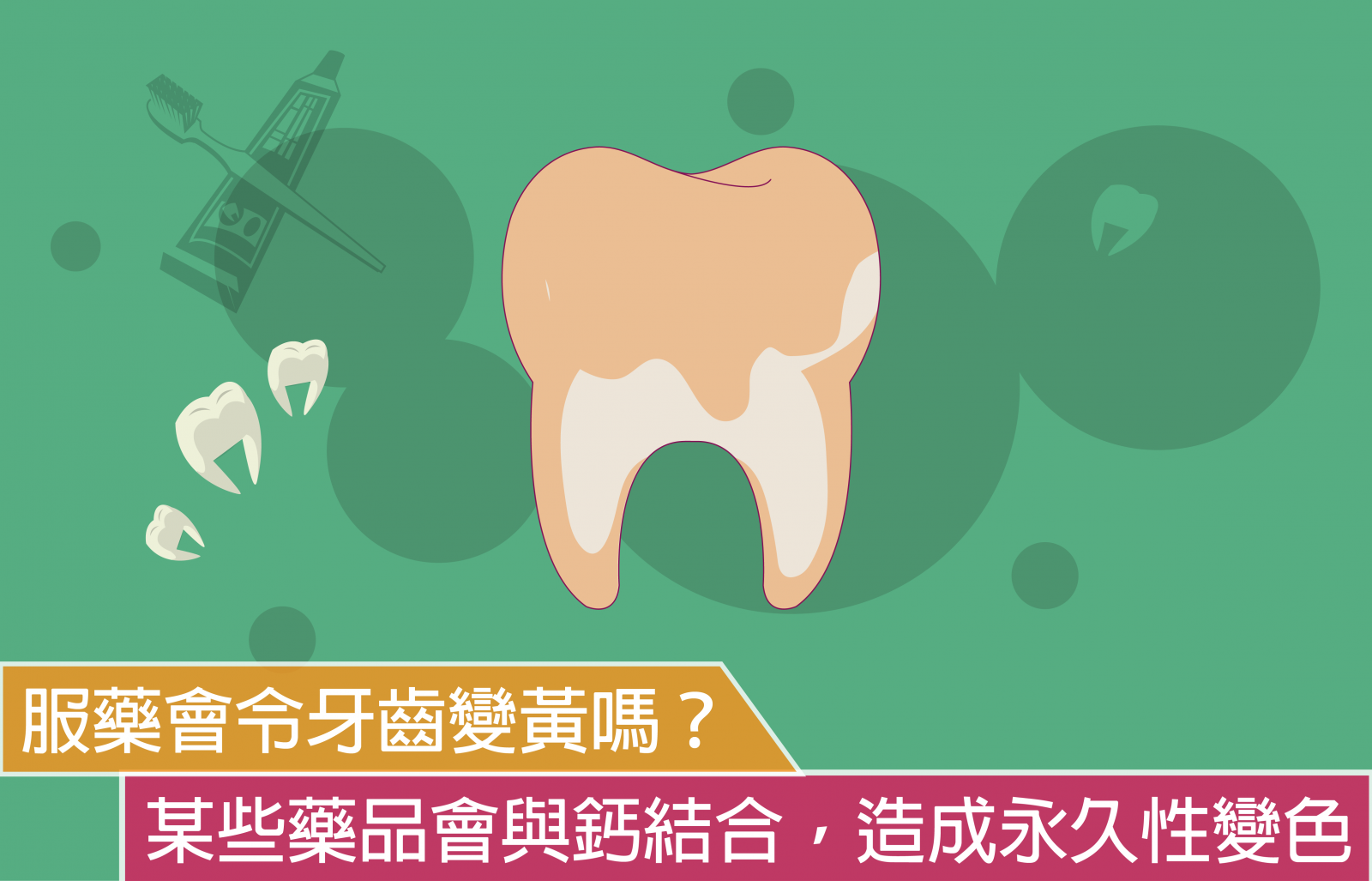
There is no doubt that people are paying more attention to their appearance. Apart from the makeup, teeth whiteness is also their concern. To maintain the brightened and white teeth, a lot of them will avoid consuming food or drinks which can stain the teeth, such as coffee, tea, red wine and curry. What they do not know is that other than diet, medication can also stain the teeth.There is no doubt that people are paying more attention to their appearance. Apart from the makeup, teeth whiteness is also their concern. To maintain the brightened and white teeth, a lot of them will avoid consuming food or drinks which can stain the teeth, such as coffee, tea, red wine and curry. What they do not know is that other than diet, medication can also stain the teeth.
If discolouration is caused by diet or smoking, we can still treat it with the usual teeth whitening methods. But staining caused by medication can be difficult to reverse. The antibiotics tetracycline, which is used for fighting bacterial infections and severe aches, is proved to be one of the culprit of teeth discolouration. If pregnant women or children under the age of 12 use tetracycline, it will bind to and settle into the calcium in the teeth. After exposure to light, the affected teeth will gradually turn into a darker colour permanently.
In recent year, the researchers have developed a new generation tetracycline antibiotics. U.S. Food and Drug Administration has approved the use of this medicine for acne treatment. It has proved to have a lower binding affinity with calcium, hence a lower chance of teeth staining caused by mediciation.
[Study Completion] Phase 1 Clinical Trial of a Nonsteroidal Anti-inflammatory and Analgesic Drug Was Completed!
21/12/2022
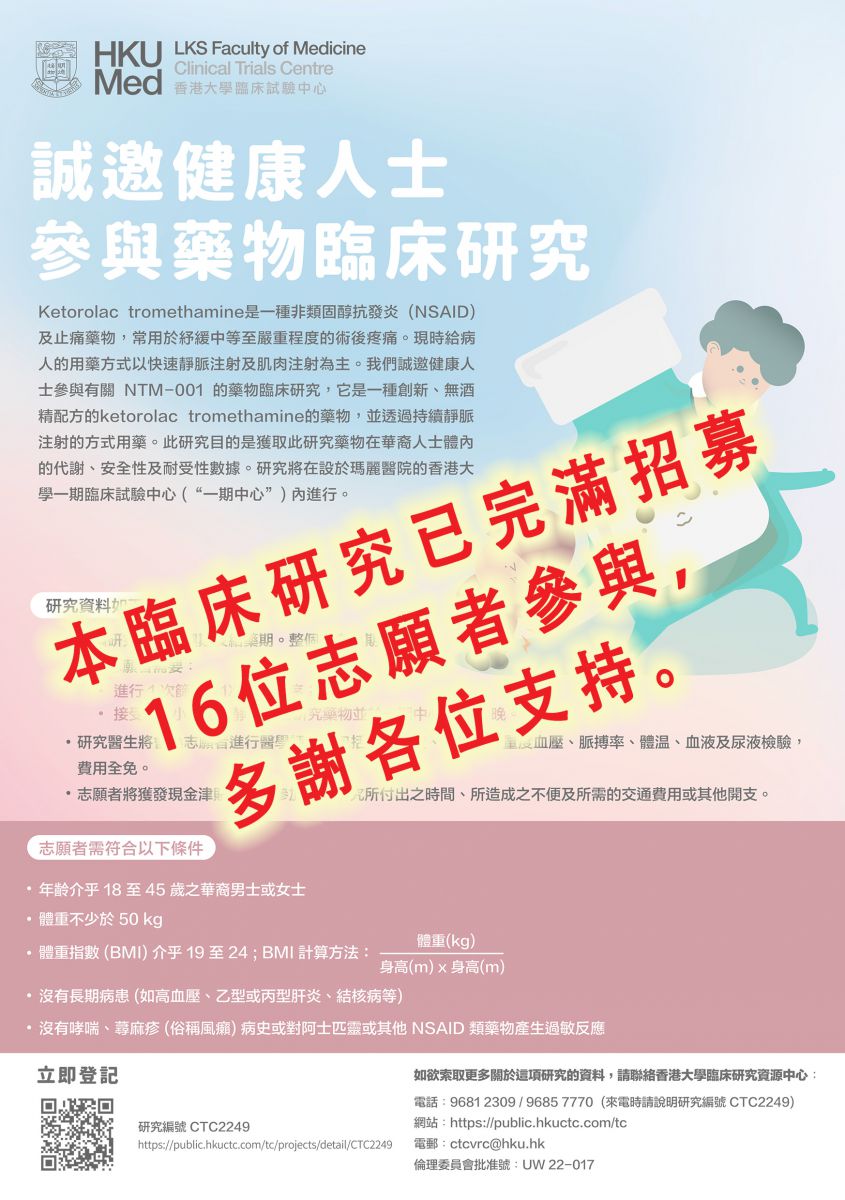
[Study Completion] Phase 1 Clinical Trial of a Nonsteroidal Anti-inflammatory and Analgesic Drug Was Completed!
21/12/2022
Promising Results in Phase I Trial of Sodium Zirconium Cyclosilicate Offer New Treatment Option for Chinese Patients
16/12/2022
Promising Results in Phase I Trial of Sodium Zirconium Cyclosilicate Offer New Treatment Option for Chinese Patients
16/12/2022
[Pharma Tips] Can children take adult medicines?
08/12/2022
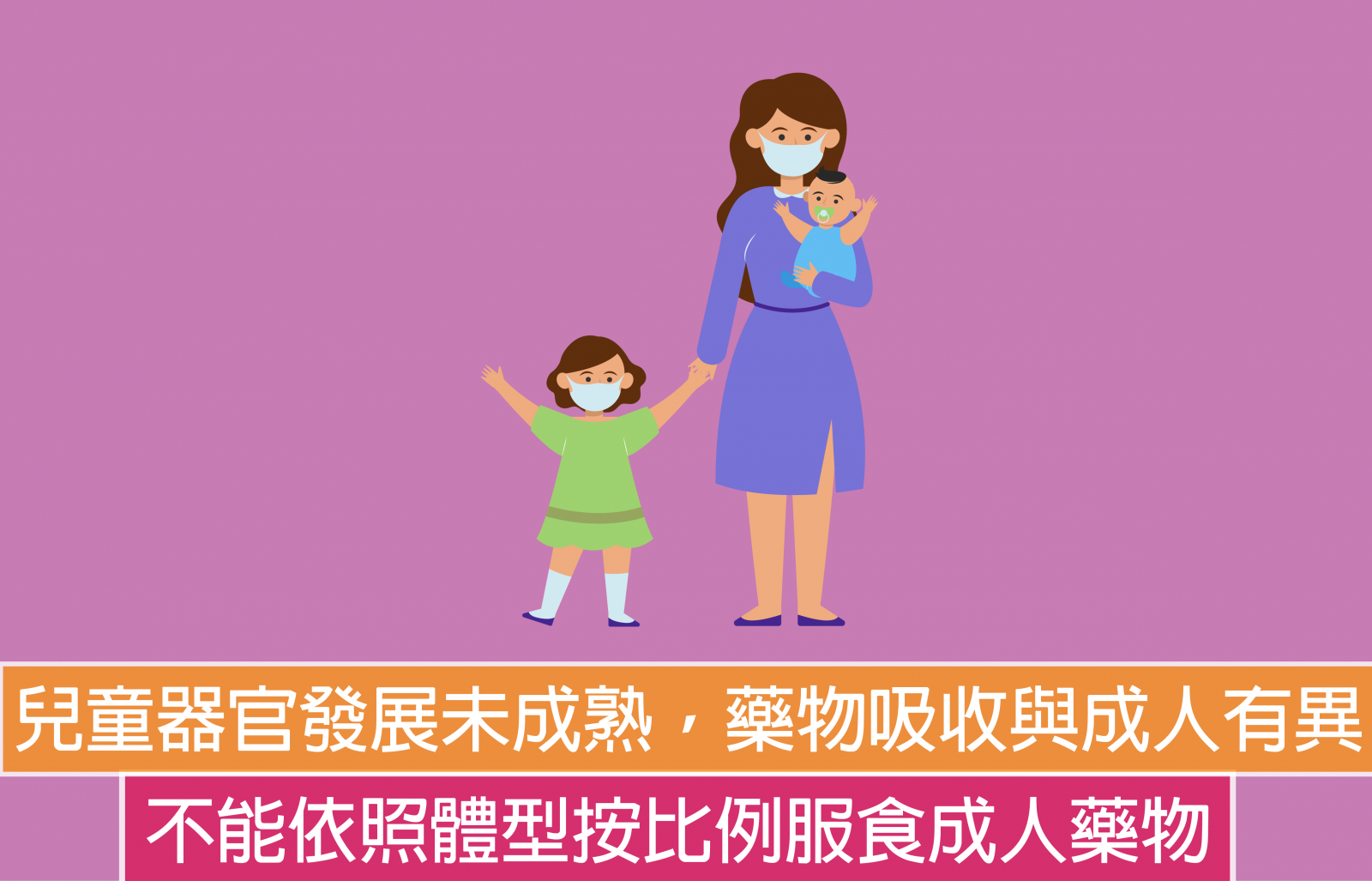
When children fall ill and the symptoms are mild, most parents will purchase over-the-counter medicines to ease the symptoms. One major problem is the paediatric medicines on the market are limited in variety. Some might instead give their children smaller doses of adult medicine. This poses risks to their health so it is not recommended.
The kids are constantly growing and developing. Their nervous, digestive and metabolic systems are immature so the adult medicines might work very differently on them. The doses must be precisely calculated. Children are not just small adults. We cannot simply reduce the amount of a drug to a child based on a proportion of the child’s body weight to an adult. This is because these medicines are clinically tested on adults only and the safety on children is unknown.
Also, there are medicines that children should never take:
- Aspirin
Aspirin is used to reduce inflammation, pain and fever. Reye's syndrome may occur when adolescents are given aspirin. This illness can cause severe damage to liver and the brain. Children who are under 16 years of age should not take aspirin, unless it is on the advice of a doctor.
- Codeine
Codeine is commonly used to treat coughing. There are over 300 registered pharmaceutical products containing codeine in Hong Kong. It acts on the central nervous system to have an analgesic effect. Although it is effective in cough suppression, the risk of respiratory depression in children is present. Hence, Hong Kong Department of Health has restricted on its use in children aged below 12. For adolescents aged 12-18 years who have health conditions that may increase the risk of breathing problems, unless the benefits outweigh any risks, or codeine use is not recommended. The health conditions include obesity and severe lung diseases, which will induce hypoventilation. Medicines causing respiratory depression should not be used together with codeine either.
As a prudent measure, you should consult a doctor or pharmacist to choose the best treatment for your children. Keep all medicines out of children’s reach to avoid the danger of mistaken consumption or poisoning.
New drug offers hope of ‘functional cure’ for hepatitis B patients
06/12/2022
[Pharma Tips] Should medications be kept in a fridge?
08/11/2022
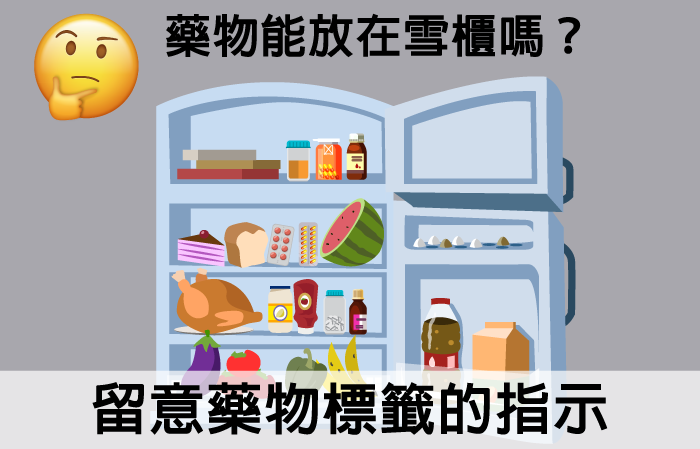
HKU Clinical Trials Centre is committed to the advancement of human healthcare and the focus of work is new treatment development. Even if there are new treatments to cure the illnesses, using or storing the medication in a wrong way may bring adverse effects. How do you handle the leftover medicines? I guess 9 out of the 10 Hong Kong people will answer: keeping it in a fridge. They think those leftover medicines can be used for critical needs which might arise, while putting them in a fridge can extend its expiration date. Is it true?
Proper storage of medicines is critical to its effectiveness and safety. Drugs are sensitive to moisture, sunlight and heat so most of them should be stored in a cool, dry place and away from direct sunlight. Unless specified on the pharmacy label, medicines should be stored at room temperature. If the medicine is not stored at the correct temperature, the effectiveness may be unfavorably affected. It will damage the medicine because of the water moisture formed in it when taking out from the fridge. On the other hand, eye drops require refrigeration but should not be used longer than one month after the bottle is opened.
[Study Completion] Phase 1 Clinical Trial of a New Investigational Drug Was Completed!
08/11/2022
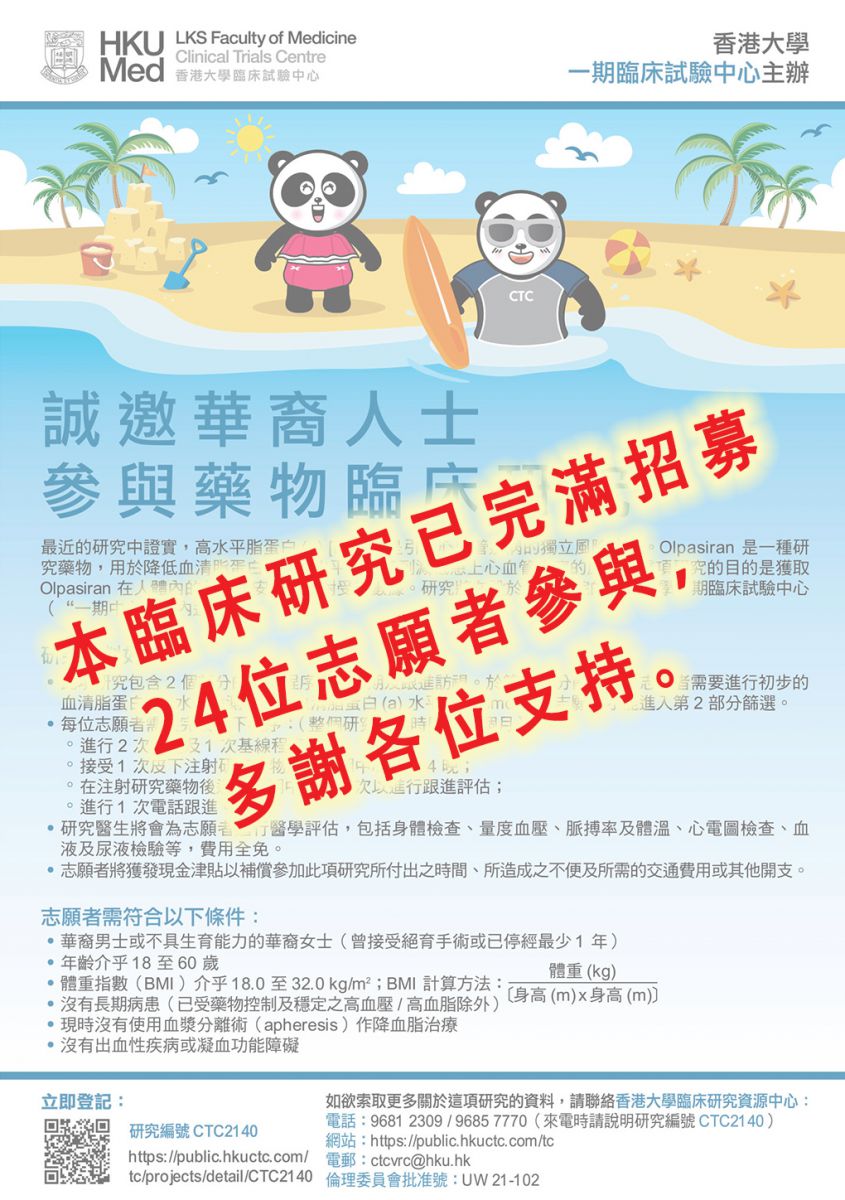
[Study Completion] Phase 1 Clinical Trial of a New Investigational Drug Was Completed!
08/11/2022

